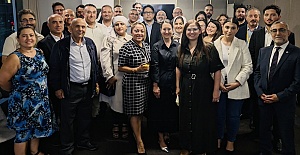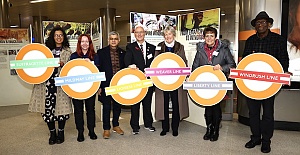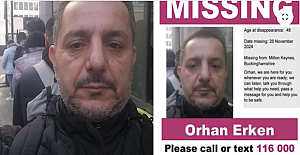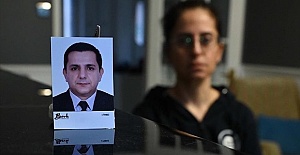Iraqi Prime Minister Nuri al-Maliki's coalition came top in provincial elections two weeks ago, results released on Saturday showed, but failed to win a majority in any district, meaning it will need alliances to hold onto senior provincial posts. Maliki's State of Law won the most seats in seven out of 12 provinces, in a vote that was the biggest test of Iraq.
Iraqi politics are deeply split along sectarian lines, with Maliki's power-sharing government mired in crisis over how to share power among Shi'ites, Sunni Muslims and ethnic Kurds who run their own autonomous region in the north.
"Ahead of the 2014 elections, the results signal to the blocs that pursuing a majoritarian government approach is difficult to bear fruit," said Ahmed Ali, an Iraq analyst at the Washington-based Institute for the Study of War.
"Coalition building remains a main characteristic of forming governments in Iraq."
Iraqiya, a secular but Sunni-dominated bloc that posed a serious challenge to the Shi'ite Maliki in 2010 parliamentary elections, won no more than three seats in any province, according to figures released by Iraq's Independent High Electoral Commission.
Months of Sunni unrest have come to a head since security forces raided a protest camp on April 23, three days after the provincial elections. Clashes swiftly spread to other Sunni areas, pushing the monthly civilian death count to 712, the highest since 2009, according to the United Nations.
Civil war in Syria is fanning Sunni-Shi'ite rivalry across the Middle East, exacerbating tensions in Iraq. Under late dictator Saddam Hussein, the minority Sunnis were politically dominant, but now they complain of being marginalised.
Maliki's State of Law received the most votes in the capital Baghdad, where it took 20 of the 58 available seats.
Voting in two Sunni-majority provinces was put off until July due to concerns about security, a delay criticised by the United States. The cabinet said the date could be postponed again unless the situation improved.
The Kurdistan region has its own timetable for provincial elections in its three governorates.
Maliki's coalition leads provincial elections
Iraqi Prime Minister Nuri al-Maliki's coalition came top in provincial elections two weeks ago, results released on Saturday showed,
05 Mayıs 2013 Pazar 03:09
reads.
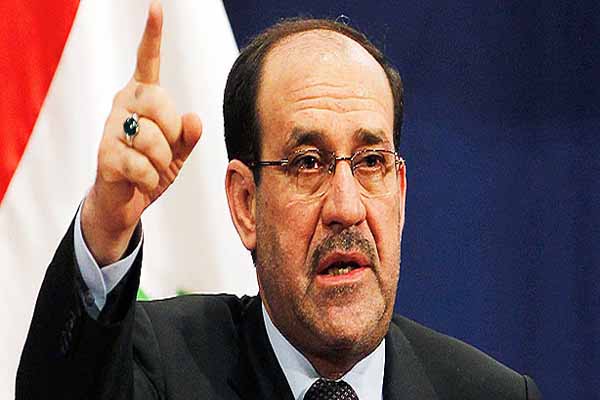


 After Nesil Caliskan a by-election will be held in Jubilee ward in Enfield
After Nesil Caliskan a by-election will be held in Jubilee ward in Enfield Publishing the analysis, Labour’s Cllr Ergin Erbil said Everybody in Enfield deserves basic rights
Publishing the analysis, Labour’s Cllr Ergin Erbil said Everybody in Enfield deserves basic rights Gaza-Israel conflict Statement from Cllr Ergin Erbil, Leader of Enfield Council
Gaza-Israel conflict Statement from Cllr Ergin Erbil, Leader of Enfield Council Cllr Ergin Erbil was elected as the new Leader of Enfield Council
Cllr Ergin Erbil was elected as the new Leader of Enfield Council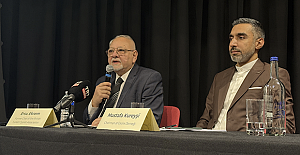 History of the Turkish Cypriot People symposium held in London
History of the Turkish Cypriot People symposium held in London Asia's most famous and powerful 100 women award given to WFPA President Naziya Bisenova
Asia's most famous and powerful 100 women award given to WFPA President Naziya Bisenova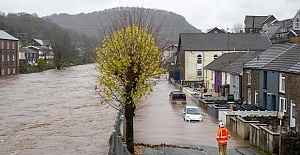 Death toll climbs to 5 as powerful Storm Bert batters Britain
Death toll climbs to 5 as powerful Storm Bert batters Britain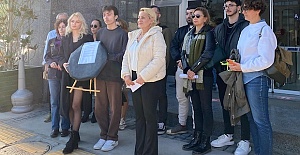 Turkish students are unable to obtain visas from the Italian Consulates
Turkish students are unable to obtain visas from the Italian Consulates Footballers are celebrating after Enfield Council officially opened a pitch
Footballers are celebrating after Enfield Council officially opened a pitch  Pep Guardiola's Manchester City beaten by Juventus
Pep Guardiola's Manchester City beaten by Juventus Chelsea to meet Arsenal in Sunday's London derby
Chelsea to meet Arsenal in Sunday's London derby Fenerbahce vs Manchester United Predicted line-ups! Jose Mourinho faces former side
Fenerbahce vs Manchester United Predicted line-ups! Jose Mourinho faces former side UK economy had zero growth between July and September
UK economy had zero growth between July and September Shape the future of housing services with The Enfield 500
Shape the future of housing services with The Enfield 500 DOUBLE-CAB PICKUPS TO BE CLASSED AS CARS UNDER NEW HMRC POLICY
DOUBLE-CAB PICKUPS TO BE CLASSED AS CARS UNDER NEW HMRC POLICY Guide to Selling Hoodies with Imprinted Book Quotes
Guide to Selling Hoodies with Imprinted Book Quotes





